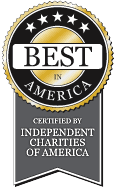TOLC
TOLC…The Organic Learning Center.
50% of the rural poor of Honduras are chronically malnourished. It is a problem with a simple and relatively inexpensive solution which is permanent. Not a band-aid solution. That is the trademark of Art For Humanity…simple, permanent, not expensive.
The concept is simple. Help families to grow more of their food. Among other things, we favor growing edible trees because trees are permanent. They only need to be planted once and provide nutrition all year long even during droughts because of their deep roots. Those same trees can not only provide nutrition for the family but also allow them to grow animals.
Additional simple things we do.
- Provide plant seeds and seed animals for the poor to raise.
- Lend new sires so animals do not become inbred as is typical in Honduras.
- Be an information resource.
How it works
The system is simple. We have 6 to 10 full time students who live with us. They learn all the procedures and become teachers. We take them around Honduras teaching others. Hondurans teaching Hondurans makes it more sustainable.
Ways you can help
Help to sponsor a full time student which is $200 monthly. Partial sponsorships are welcomed.
Contributions to our Seed Fund. Those funds are used to provide plant seeds and seed animals to poor families.
Volunteers are welcomed and needed.
For those of you who have volunteered at HIBS, TOLC is a project of HIBS.
In Honduras, The Organic Learning Center (TOLC) is CAO. CAO is the Spanish version of TOLC. Centro Aprendizaje Orgánico. CAO in Spanish is pronounced as “cow” in English. Bottom line, when you hear people talking about “cow” they’re not talking about an animal.
For those interested in WWOOFing, here is some info.
Like us  Facebook
Facebook
Alan and Jennifer are our most recent volunteers.
.
The following videos illustrate some of the things students are learning.
Growing Bananas….easy if done correctly.
Seal Of Excellence

The Seal of Excellence is awarded to Charities that certify on an annual basis they meet the highest standards of public accountability, program effectiveness, and cost effectiveness. Of the 1,000,000 charities operating in the United States today, fewer than 50,000, meet these standards, and, of those, fewer than 2,000 have been awarded this Seal.